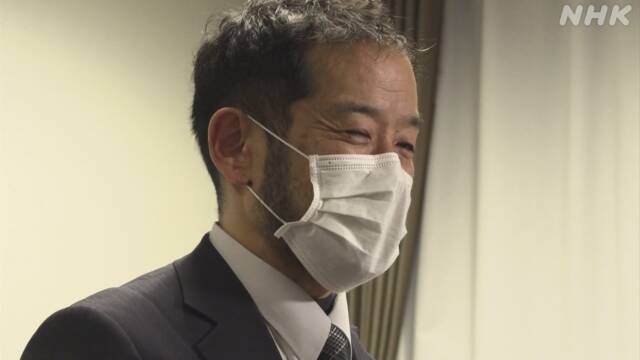Amid growing tensions over the situation in Ukraine, people from Fukushima University and others who are investigating radioactive materials around Chernobyl in collaboration with Ukrainian experts after the accident at TEPCO's Fukushima Daiichi Nuclear Power Station will move on to future research. There are voices worried about the effects of.
At the Chernobyl nuclear power plant in Ukraine, a large amount of radioactive material was released in an accident during the former Soviet era 36 years ago, and it has been pointed out that there is still a danger of spreading it, and there are restricted areas around it.
After the Fukushima Daiichi nuclear accident 11 years ago, Fukushima University and others have been conducting research in collaboration with Ukrainian research institutes to observe radioactive materials around the Chernobyl nuclear power plant and prevent the spread of contamination. We also share the survey results.
However, tensions over the situation in Ukraine have increased, and the effects are beginning to appear, such as the cancellation of the dispatch of researchers scheduled for next month.
Chernobyl is close to the border with Belarus where Russian troops stay, and depending on the future situation, it will not be possible to conduct sample surveys to collect animals and soil, and it will not be possible to continuously obtain data due to the destruction of observation equipment. There is also a risk.
Kenji Namba, director of the Institute for Environmental Radioactivity, Fukushima University, who is a core member of the joint research, said, "The investigation of the Chernobyl accident that occurred 25 years before the accident in Fukushima will lead to the management of radioactivity in Fukushima. I want you to get it back, but we have to change our future depending on how far Russia will take military action. "
Ukrainian researcher "In a situation where you cannot concentrate"
At Fukushima University, there are researchers from Ukraine as well as Russia who participate in joint research, and there are voices concerned about the impact on research.
Ukrainian professor Mark Jereznyak said, "Some researchers from Russia have been working with us right after the Chernobyl accident, but he is a long-time friend and researcher, so we will continue to work with him. I would like to continue my research. However, in a tense situation, I myself am worried about my friends and relatives in Ukraine, and I am in a situation where I cannot concentrate on my original research. "
What is joint research with Fukushima University?
Domestic universities such as Fukushima University and several research institutes in Ukraine have been conducting joint research to understand the status and effects of radioactive substances released in the Chernobyl accident since 2017 after the accident at TEPCO's Fukushima Daiichi nuclear power plant. I am.
The research is mainly conducted in the "exclusion zone" within a radius of about 30 km from the Chernobyl nuclear power plant, installing equipment for observing radioactive substances, collecting animals and water living in the vicinity, and analyzing the data. doing.
Specifically, we will investigate how radioactive substances that are easily dissolved in water are flowing into rivers, and how much radioactive substances contained in the air will flow to Kiev, the capital, about 100 km away due to a large-scale forest fire. In addition to observing the fire with the observation equipment mounted on the vehicle, we also use a drone to grasp the radioactive substances in the forest.
Of these, the river water quality survey is being researched in Japan in order to utilize it in the environmental survey of the accident at the Fukushima Daiichi Nuclear Power Station of Tokyo Electric Power Company, and data is being shared and examined.
In addition to proposing to the Ukrainian government how to utilize the land in the "off-limits area", we will share information on the situation and efforts in the "difficult-to-return area" of Fukushima, and aim for the return of residents adjacent to the off-limits area. It means that information such as issues is also exchanged.
The research team was planning to visit Ukraine next month to conduct an investigation, but due to the worsening situation, it was canceled and there is no prospect of resumption.
In addition, in preparation for Russia's military invasion, there are restrictions on actions in restricted areas, etc., and it is difficult for Ukrainian researchers to collect samples as it is, and there are concerns about the impact on continuous data acquisition. ..

